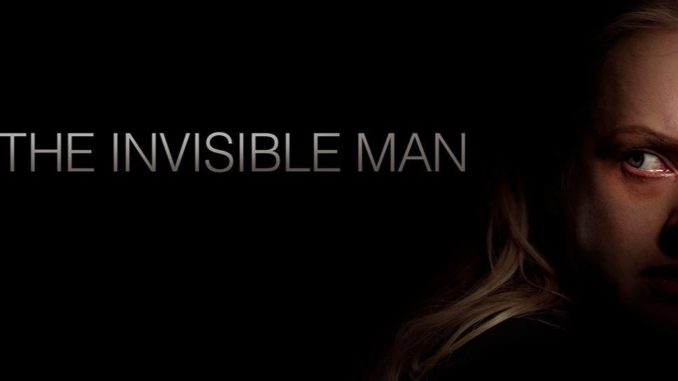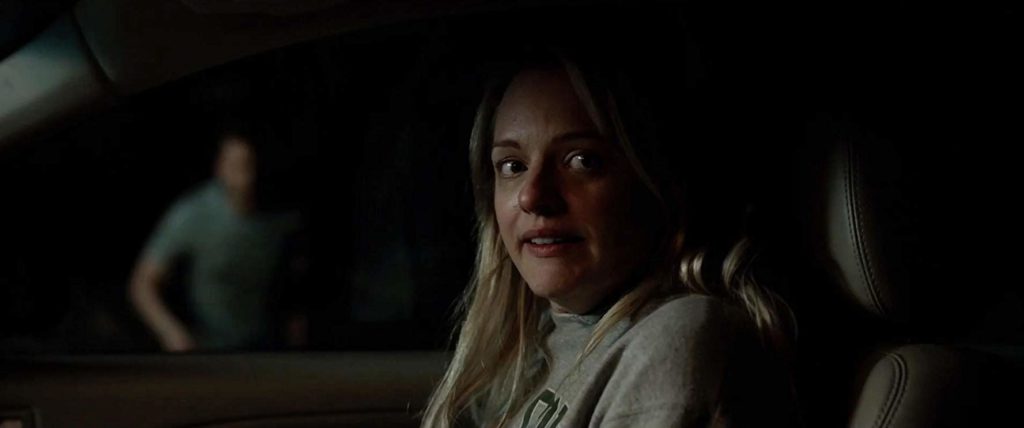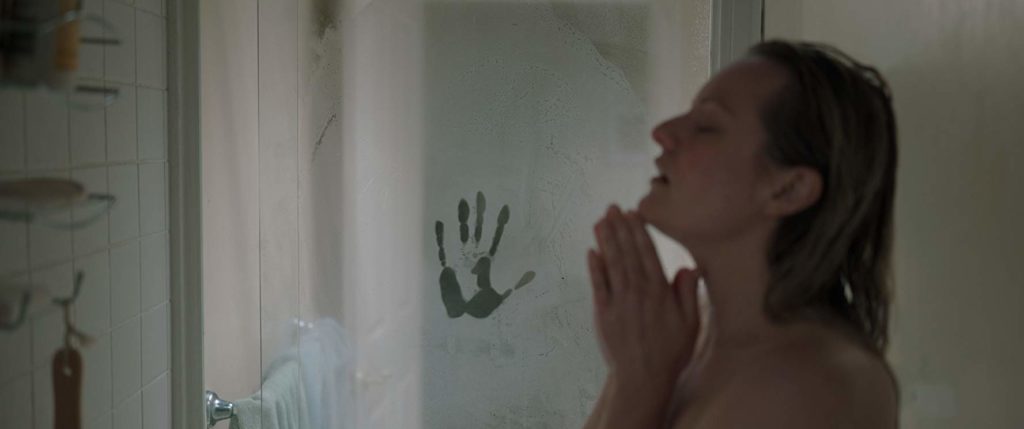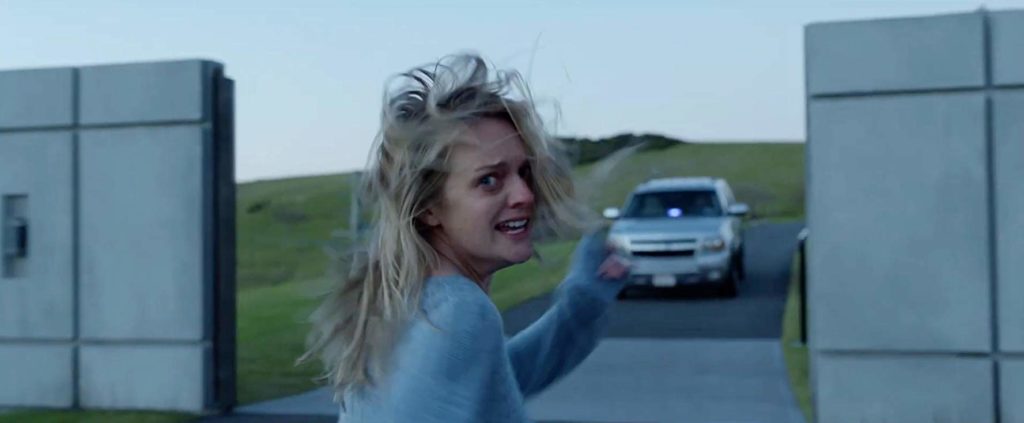
By Jason Shawhan (Twitter: @jshawhan)
It’s rare when you see a film so accomplished, certain, and serrated on all sides that you worry about recommending it too enthusiastically. As a film, The Invisible Man is an elegant and vicious nightmare rooted deeply in human trauma. As a horror film, it is an exquisite symphony of shocks and emotional wrenches. And as a cathartic exorcism of the unease that any viewer who isn’t a rich straight white man feels on a daily basis, it is essential for anyone who appreciates cinema of the rigorous and the relentless.
But this is not a film for everybody. In fact, I don’t know exactly to what extent I need to hype it- there are far too many people who have dealt with the trauma of domestic violence, abusive relationships, surviving assault, and trying to reforge their own lives in the wake of life-derailing caesurae- and this movie could be re-traumatizing for a lot of them. So with that in mind, I would tread gingerly into this film’s universe, if at all.

Cecelia (Elisabeth Moss, godlike in ability and all too human in wrenching relatability) is making her break for freedom. Her abusive tech bro husband Adrian (Oliver Jackson-Cohen, from The Haunting of Hill House) has turned her into a virtual prisoner in his postmodern cliffside Bluebeard castle, and she’s put everything into escaping. But such endeavors are never easy, and despite making it to a point of establishing a stopgap life with a friendly cop (Aldis Hodge, Straight Outta Compton’s MC Ren) and his teenage daughter Sydney (Storm Reid, from A Wrinkle in Time), everything starts getting weird when Adrian commits suicide, leaving Cecelia as heir to five million dollars.
But death is not so much of an absolute, because someone, something, is lurking around Cecelia, manipulating her environment, playing games with her circumstances, and engaging in a campaign of terror around every aspect of her life. And in the hands of writer/director Leigh Whannell (he directed Upgrade and Insidious 3 as well as writing the first Saw and many entries of the Insidious series), we are along every step of the way, on a roller-coaster of punishing brutality and undeniable thrills. If Whannell weren’t such a gifted director and Moss one of the greatest actors working today, this film could have been unspeakable. If you saw Moss in last year’s Her Smell, know that she is just as good here and that the film is just as pitiless and grinding- just in completely different ways.

Even in its current form, it will be too much for many. The sound mix alone (major props to Benjamin Wallfisch’s equally sumptuous orchestral and dronetastic score) could find you wishing you’d taken your antianxiety meds, and editor Andy Canny is sharp enough that his cuts can wound. Cinematographer Stefan Duscio (who shot The Last Time I Saw Richard, to this day the finest queer horror short I’ve ever seen) knows how to use light and video to create a liminal frame that draws from the Michael Snow/Paranormal Activity school of menacing negative space. And they all work together to create a film that just does not stop.
I love horror films, and see every R-Rated horror film that plays theatrically just on general principle. I know the tropes, and I’m good at sussing out twists, and it’s part of the joy of the experience. This film got me five times: some were jumps, some were shocked inhalations of breath, and one was a gradual realization that turned my guts into a cat’s cradle. This movie quite simply does not fuck around, and if you’re still reading to this point, then you should check it out. But be wary. And be careful.

